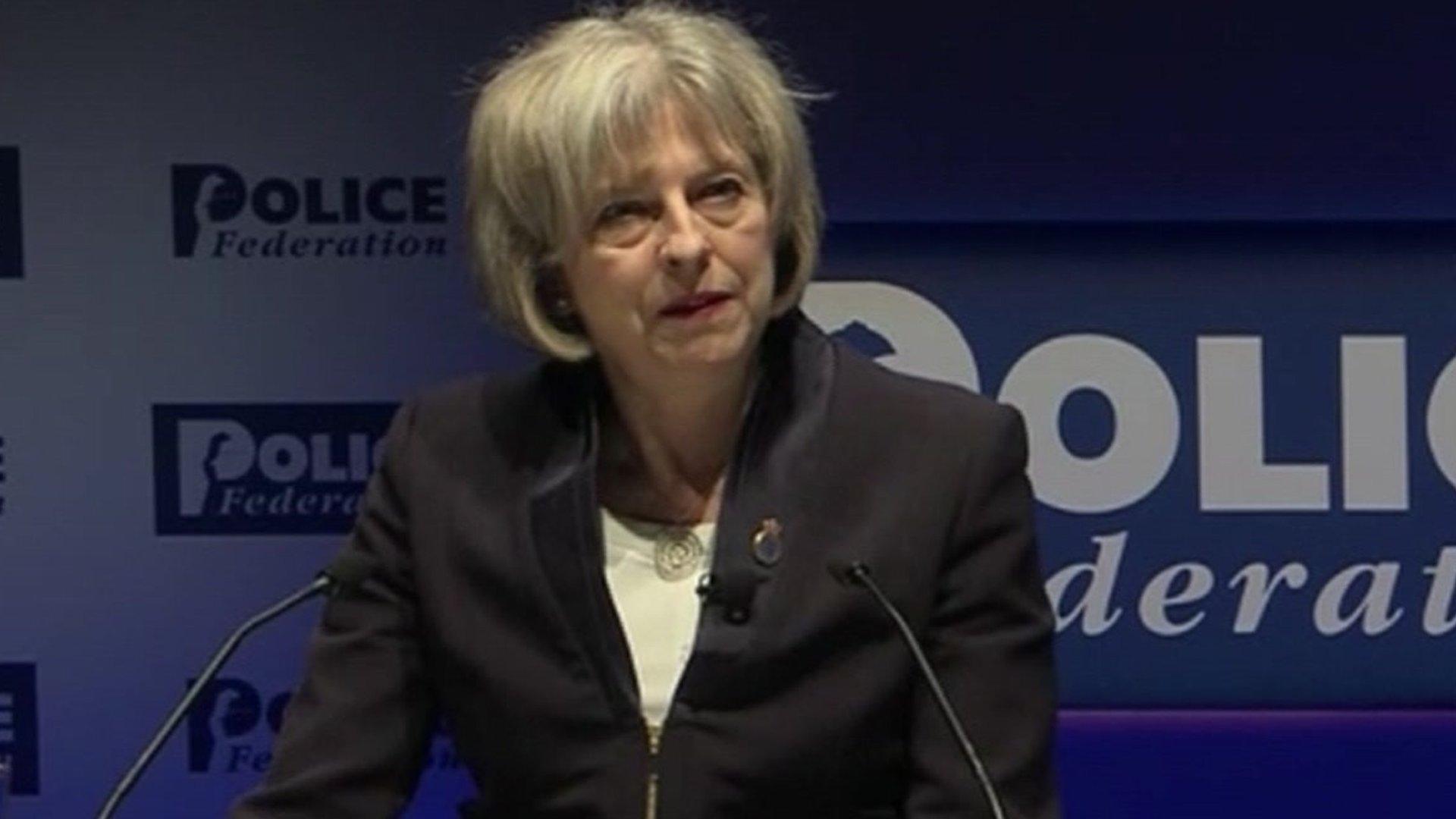Bobbies on the beat coming to an end, senior officers say
- Published
- comments
Chief Constable Sara Thornton: "The evidence would say that random police patrol doesn't prevent crime"
Two of the country's most senior police officers have signalled that the era of routine patrols by "bobbies on the beat" has come to an end.
The comments have been made by the chairwoman of the National Police Chiefs' Council (NPCC), Sara Thornton, and Craig Mackey, the deputy commissioner of the Met Police.
They said funding cuts would lead to a transformation in investigating crime.
The Home Office said police reform was working and crime was falling.
The police service does not have a ring-fenced budget and has been told to expect a 25% to 40% reduction in funding in November's Comprehensive Spending Review.
In an interview with BBC Newsnight, Mr Mackey said the Met was anticipating a £1bn cut in funding, which could lead to up to 8,000 job losses - a quarter of the force. He said compulsory redundancies were now a real possibility.
Are bobbies on the beat 'endangered'?
He said it was inevitable the threshold for investigating certain crimes would rise, which would involve victims getting a telephone call rather than an officer at the door.
The Met, he said, was also considering seeking funding from banks and other big business to help pay for investigations into certain offences - such as cyber crime.
"We are driving out costs everywhere we can but when you get to these sorts of figures it will be challenging...on our scenarios some of the services you previously got face to face you won't get in the future," he said.
'Independent police force'
Mr Mackey said the force had to think of "completely different models of working" to tackle cyber crime.
"We should be working with business and industry to achieve that... and they can help with paying for that," he added.
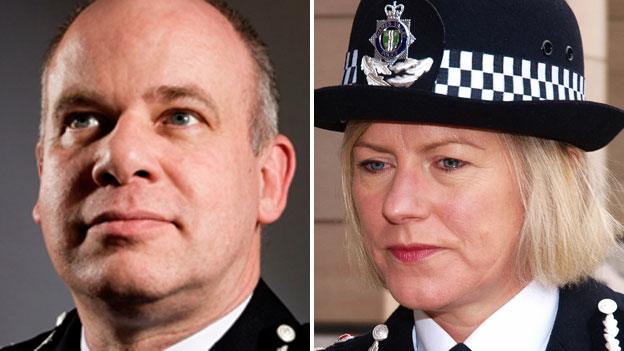
Craig Mackey and Sara Thornton made their comments in separate interviews to BBC Newsnight
Asked if that meant direct funding for policing programmes, he said: "Potentially. I think that is one of the things we are going to have to think about as we go forward."
Mr Mackey admitted there were "all kinds of ethical hurdles" to consider and that it would not be comfortable for an independent police force.
"But we absolutely have to explore it," he added.
A certain amount of "DIY policing" would also help the force, he said.
"Getting people involved in the whole notion of prevention work and crime detection work has got to be part of the future."
'Fewer cops'
On the totemic issue of "bobbies on the beat", Ms Thornton, formerly chief constable of Thames Valley, said: "It's a difficult one because it's one of those features of policing that the public have come to like and respect over many, many years but in fact the evidence would say that random police patrol doesn't prevent crime, doesn't solve crime, it doesn't in fact make people feel safer."
Asked if she thought the days of routine patrols were over, she said officers would "always respond to the pub fight, domestic abuse, to people in difficulty" but, in the future, patrols would not be focused on areas of low crime.
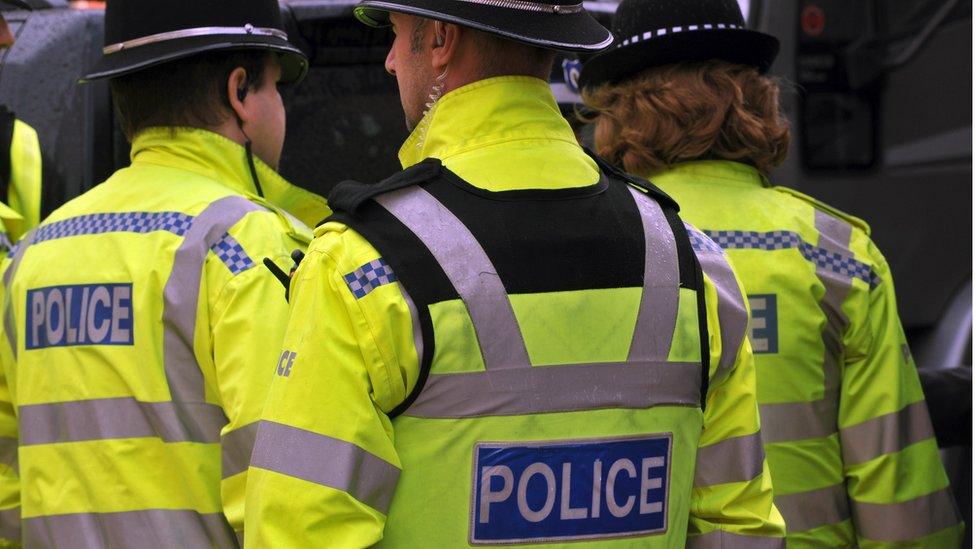
Minister for Policing Mike Penning said police reform was working and crime had fallen by 8% year-on-year and by more than a quarter since 2010, according to the independent Crime Survey for England and Wales.
"Over the last five years, frontline services have been protected, public confidence in the police has gone up and crime has fallen to its lowest ever level," he added.
The changes made since 2010 have made it easier for the police to do their job by cutting red tape, scrapping unnecessary targets, and giving officers the discretion to use their professional judgement, he said.
"Decisions on the operational deployment of resources are matters for chief constables, in association with Police and Crime Commissioners, but there is no question that the police still have the resources to do their important work.
"As HMIC has shown, what matters is how officers are deployed, not how many of them there are in total."
- Published20 October 2015
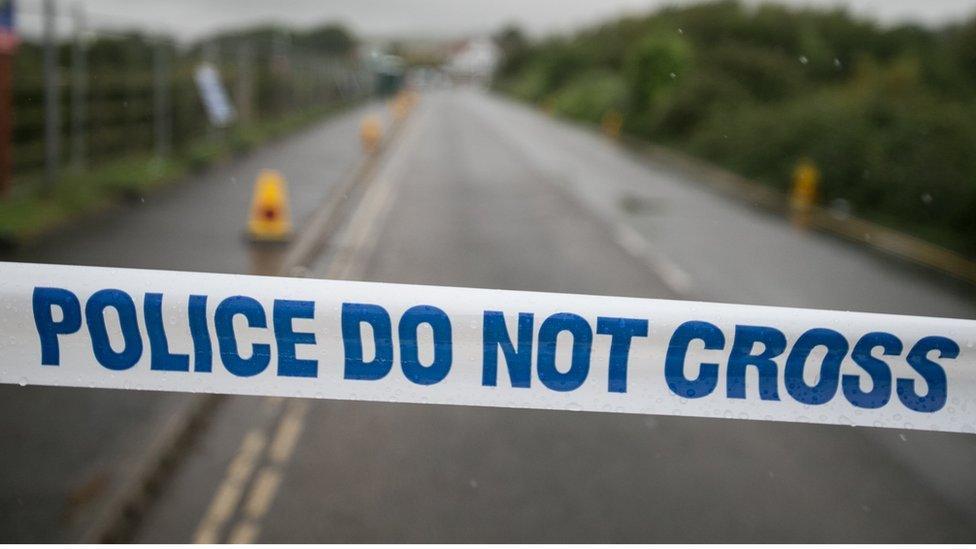
- Published7 September 2015
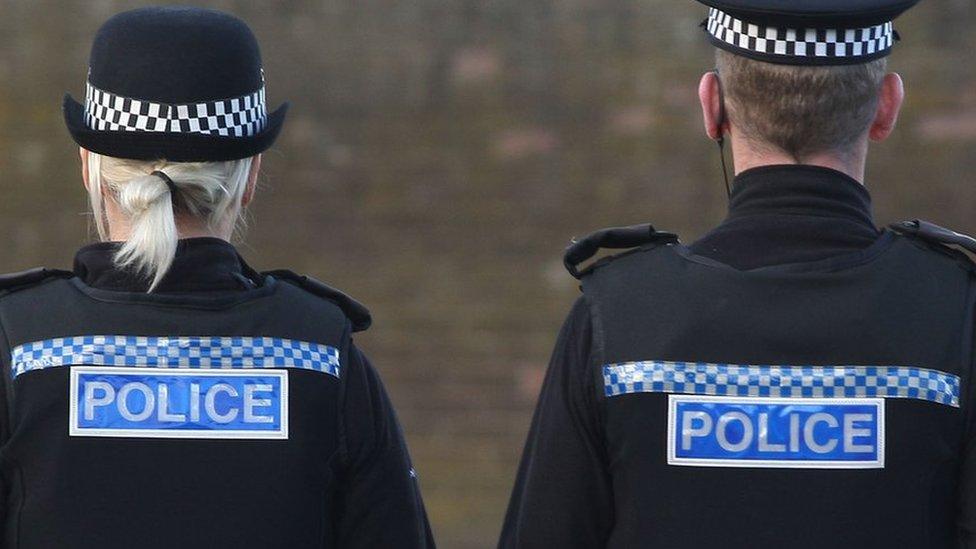
- Published20 May 2015
